New construction - how to know details of construction?
Jackie
6 years ago
Featured Answer
Sort by:Oldest
Comments (54)
Mark Bischak, Architect
6 years agoVirgil Carter Fine Art
6 years agoRelated Discussions
Choosing cabinets for new construction without knowing lighting
Comments (1)I think you may be over-thinking things. Pick a stain color you like in a store and ask to also see it in natural light. Then proceed from there. Make sure you bring a door sample when you shop for a counter. This isn't brain surgery and lights can make it look better or worse, but not by huge margins....See MoreFirst time buyer. New construction property. By myself..I know, right.
Comments (3)In my experience (only done this twice, lol).... 1 - There should be no surprises at the table -- meaning all of the rates, final purchase price, etc. should already be discussed/approved -- provided that you don't go out and buy a new car/appliances/lose your job before closing. 2 - I doubt it. 5-10 points is nothing in the grand scheme of things. 3 - I'd finance with whomever I felt most comfortable, assuming you have the remaining 30% down payment to use the builder's financing. My husband and I just closed in August 2017 on a new construction production/tract home (Gehan), and we were all set to *not* use the builder's mortgage company because when we asked about a specific loan type, we were told we didn't qualify. So we went shopping, and other mortgage lenders said we qualified *no problem*. We confronted the builder's lender, and they totally backpedaled, claiming that the associate who was "helping" us no longer worked for the company, etc., etc., etc. Moral of the story? Get competitive offers to keep the builder's lender honest. 4a - You didn't ask, lol, but I'd like to add the following. Use local comparable sales of existing homes as your "budget." This protects you from overbuilding in the neighborhood (and possibly not qualifying at closing). Visit the Design Center ahead of time, making your selections and pricing everything out while keeping your comps-based budget in mind, before your actual appointment. 4b - Speaking of the Design Center, try to upgrade as little as possible (or not at all) for interior design stuff like paint, light/plumbing fixtures, flooring, or even cabinetry/counter tops. Upgrade insulation, add windows (if you can), increase your electrical service, etc... You know, all of the structural things that are impossible/total pain to change later. :-D...See MoreLooking for details on how to construct my kitchen island
Comments (2)Your Kitchen Designer should be doing the design for this, in conjunction with installer’s skills and preferences. Some cabinet lines can’t do anything close to that, because they don’t carry the right parts and pieces. Or their limitations in construction prohibit the custom design response needed. For instance, that has a integral door finished side, which limits how the island can be designed, and the attachment points. You really have to know the cabinet line and it’s limitations. And have someone skilled in steel and wood fabrication and design both. Some cabinet lines have predesigned components for islands. It all comes down to the cabinet line that you are using and the skill of your team. Start with, what cabinets are you using? Do they even have the parts available? That’s a conversation with your KD. Who should be designing this for you....See MoreNew Home Construction + Pool Construction - Best way to finance?
Comments (14)While you can include all costs of the pool and landscape into a construction loan, pool and landscape may have little effect on the appraisal. That translates into a higher down payment or cash out of pocket up front. For example: Land+Design+Permits+Construction for a project that appraises at around $1.2 mil also appraises around $1.2 mil. At 80% LTV (loan to value) the client can borrow $960K. (75% = $900K). When we add solar (a CA requirement Jan 1), pool and landscape for about $150K more, the appraisal if we're lucky, increases $50-100K, increasing the loan $40-80K at 80% LTV. The effective loan on the solar/pool/landscape is 25-50%. If the market is less robust, the appraisal won't be affected creating a higher cash out of pocket requirement for loan recording. If you can wait until completion of the home, you can often get an updated higher appraisal and fund these with less cash out of pocket....See Morelookintomyeyes83
6 years agoUser
6 years agoMilly Rey
6 years agolast modified: 6 years agoVirgil Carter Fine Art
6 years agoMilly Rey
6 years agolast modified: 6 years agoMark Bischak, Architect
6 years agoAnglophilia
6 years agodbrad
6 years agotaconichills
6 years agoJackie
6 years agooliviag55
6 years agoSuru
6 years agoMilly Rey
6 years agolast modified: 6 years agoILoveRed
6 years agoworthy
6 years agolast modified: 6 years agoMilly Rey
6 years agoworthy
6 years agolast modified: 6 years agojust_janni
6 years agoJackie
6 years agoColumbus Custom Design
6 years agocpartist
6 years agoJackie
6 years agoJackie
6 years agoAnglophilia
6 years agoMark Bischak, Architect
6 years agoMilly Rey
6 years agoVirgil Carter Fine Art
6 years agoMilly Rey
6 years agocpartist
6 years agoVirgil Carter Fine Art
6 years agoUser
6 years agoRyan Snow
6 years agoNatalie H.
6 years agolast modified: 6 years agoSummit Studio Architects
6 years agoUser
6 years agobry911
6 years agolast modified: 6 years agoSummit Studio Architects
6 years agoMark Bischak, Architect
6 years agonirvanaav
6 years agoUser
6 years agoSummit Studio Architects
6 years agoNatalie H.
6 years agojmm1837
6 years agolast modified: 6 years agoDavid Cary
6 years agobry911
6 years agolast modified: 6 years agohomechef59
6 years agoMark Bischak, Architect
6 years ago
Related Stories

REMODELING GUIDESConstruction Timelines: What to Know Before You Build
Learn the details of building schedules to lessen frustration, help your project go smoothly and prevent delays
Full Story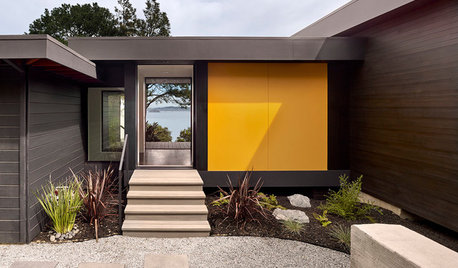
BUDGETING YOUR PROJECTConstruction Contracts: What to Know About Estimates vs. Bids
Understanding how contractors bill for services can help you keep costs down and your project on track
Full Story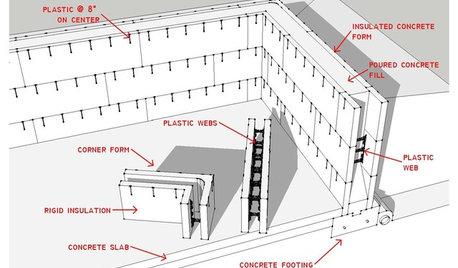
KNOW YOUR HOUSEKnow Your House: The Basics of Insulated Concrete Form Construction
Get peace and quiet inside and energy efficiency all around with this heavy-duty alternative to wood-frame construction
Full Story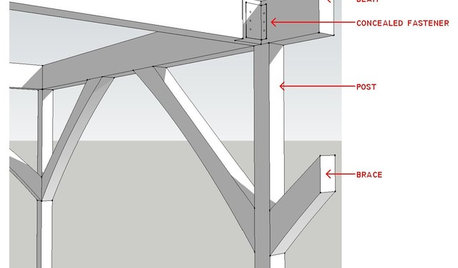
REMODELING GUIDESKnow Your House: Post and Beam Construction Basics
Learn about this simple, direct and elegant type of wood home construction that allows for generous personal expression
Full Story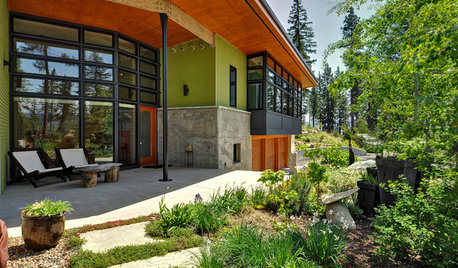
BUDGETING YOUR PROJECTConstruction Contracts: What Are General Conditions?
Here’s what you should know about these behind-the-scenes costs and why your contractor bills for them
Full Story
CONTRACTOR TIPSLearn the Lingo of Construction Project Costs
Estimates, bids, ballparks. Know the options and how they’re calculated to get the most accurate project price possible
Full Story
KNOW YOUR HOUSEStair Design and Construction for a Safe Climb
Learn how math and craft come together for stairs that do their job beautifully
Full Story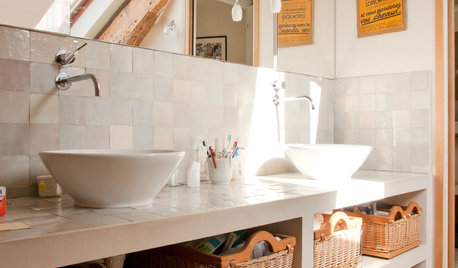
WORKING WITH PROSConstruction Contracts: How to Understand What You Are Buying
Learn how plans, scope of work and specifications define the work to be completed
Full Story
BUDGETING YOUR PROJECTDesign Workshop: Is a Phased Construction Project Right for You?
Breaking up your remodel or custom home project has benefits and disadvantages. See if it’s right for you
Full Story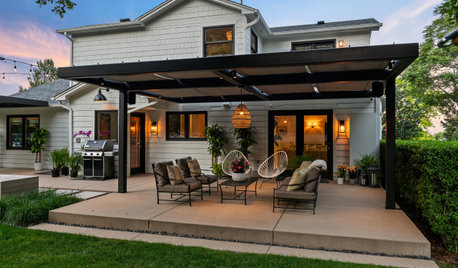
WORKING WITH PROSYour Guide to a Smooth-Running Construction Project
Find out how to save time, money and your sanity when building new or remodeling
Full Story






User